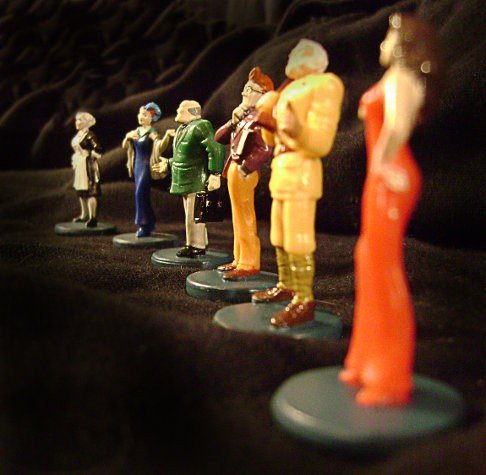
At a press conference last year, President Clinton, addressing the flap about the First Lady in her interview with Talk magazine, said, “But I can tell you this, as I think about other children in the world and in our country that have difficulties growing up, I am convinced from my own life and from my research and from my experience with other children, the most important thing is that every child needs to know growing up that he or she is the most important person in the world to someone. And I knew that, so – I knew that.”
National Association of Independent Schools (NAIS 2001)
by Dane L. Peters
Happy children have one characteristic in common: they know, without doubt, that they are loved, that they are the most important people in the world to someone else. Helping our children feel this is not always easy. It requires diligence, perseverance, and vigilance. Ironically, when we need to devote the most time to our children, it is often the time when spousal relationships and careers also scream for attention. But if we wait for our careers to settle in and financial pressures to dissipate, we will miss the boat. Our children will be grown and gone, and, in one more ironic twist, we may find ourselves longing to have our children spend more time with us. The prophetic lyrics in Harry Chapin’s song, “Cats in the Cradle” always command my attention. “When you coming home, Son?” “I don’t know when, but we’ll get together then, Dad. We’re going to have a good time then.”
Giving your children the feeling that they are the most important people in your life is the best gift you can give. In an era when the economy dictates that most parents must work full time out of the home and the consumer culture distracts us from familial relations, it is easy to overlook our relationships with our own children. But we do so at our own peril.
Who children are and how they feel about themselves emanate from how their parents regard them. Children are astute – they have a veiled sixth sense about how they are perceived. When mothers and fathers have other lasting issues or goals that do not include their children, it is only a matter of time before children sense this and begin to flounder. Homework, peer relationships, and behavior begin to take a turn for the worse. In their book The Students Are Watching, Theodore and Nancy Sizer eloquently remind parents, teachers, and schools how accurate and sensitively aware children are in their assessment of the adult world.
Here are some ways to let your children know that they are the most important people in your life:
On a consistent basis, attend their athletic events, school plays, parents’ nights, school activities.
Hang artwork, good papers, and news clips on the refrigerator and in conspicuous places around the house.
Read, play games, swim, play ball, tennis, golf, etc. together; set aside time that is just for your children.
Encourage them to participate in activities that interest you.
On a consistent basis, make it a point to eat together at the same table – at home or in a restaurant. Encourage your children to express their views and opinions, and listen to them.
Periodically make the tough decisions that force you to give up something important in your life in favor of your children.
Use money for their bank accounts, not on things they want.
Say “no” to at least half of the things they want. Do not overindulge them.
Frequently tell your children how much you love them; use hugs to reinforce your words.
Get to know their friends. Make your home an inviting place for your children and their friends.
Participate in their lives by coaching, baking, driving to the movies, going to the movies.
Rather than assigning chores to your children, do jobs together; do evening work in the same location.
Recently, while in a muse, my thoughts returned to a time when my young son squeezed my hand and looked up at me – a profound and simple gesture that helped me realize I made the right choice in leaving work early to watch his soccer game. If I had known that it was that important to him, I would not have given it a second thought. When it comes to time with our children, we should have few, if any, second thoughts. Letting our children know that they are the most important people in our lives, particularly throughout the early years, is critical to their development, their sense of self, and to how they will look at life as adults.
Dane L. Peters is headmaster of Mooreland Hill School (Connecticut).


